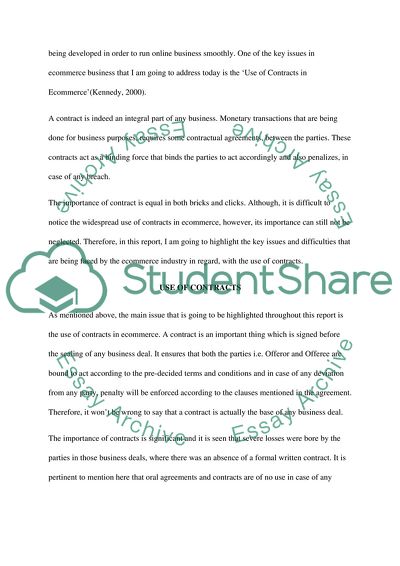Cite this document
(Use of Contracts in Ecommerce Assignment Example | Topics and Well Written Essays - 2000 words, n.d.)
Use of Contracts in Ecommerce Assignment Example | Topics and Well Written Essays - 2000 words. Retrieved from https://studentshare.org/e-commerce/1800184-use-of-contracts-in-e-commerce
Use of Contracts in Ecommerce Assignment Example | Topics and Well Written Essays - 2000 words. Retrieved from https://studentshare.org/e-commerce/1800184-use-of-contracts-in-e-commerce
(Use of Contracts in Ecommerce Assignment Example | Topics and Well Written Essays - 2000 Words)
Use of Contracts in Ecommerce Assignment Example | Topics and Well Written Essays - 2000 Words. https://studentshare.org/e-commerce/1800184-use-of-contracts-in-e-commerce.
Use of Contracts in Ecommerce Assignment Example | Topics and Well Written Essays - 2000 Words. https://studentshare.org/e-commerce/1800184-use-of-contracts-in-e-commerce.
“Use of Contracts in Ecommerce Assignment Example | Topics and Well Written Essays - 2000 Words”, n.d. https://studentshare.org/e-commerce/1800184-use-of-contracts-in-e-commerce.


